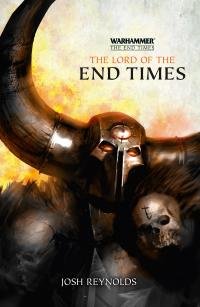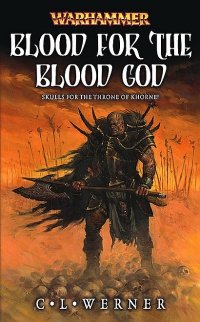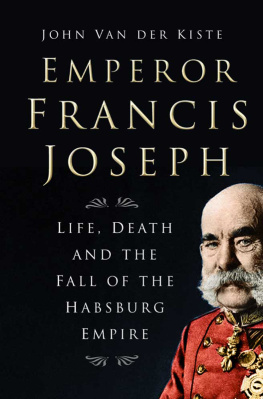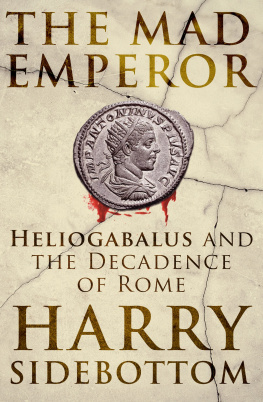The End Times:
The Fall of Altdorf
(Chris Wraight)

The world is dying, but it has been so since the coming of the Chaos Gods.
For years beyond reckoning, the Ruinous Powers have coveted the mortal realm. They have made many attempts to seize it, their anointed champions leading vast hordes into the lands of men, elves and dwarfs. Each time, they have been defeated.
Until now.
In the frozen north, Archaon, a former templar of the warrior-god Sigmar, has been crowned the Everchosen of Chaos. He stands poised to march south and bring ruin to the lands he once fought to protect. Behind him amass all the forces of the Dark Gods, mortal and daemonic. When they come, they will bring with them a storm such as has never been seen. Already, the lands of men are falling into ruin. Archaons vanguard run riot across Kislev, the once-proud country of Bretonnia has fallen into anarchy and the southern lands have been consumed by a tide of verminous ratmen.
The men of the Empire, the elves of Ulthuan and the dwarfs of the Worlds Edge Mountains fortify their cities and prepare for the inevitable onslaught. They will fight bravely and to the last. But in their hearts, all know that their efforts will be futile. The victory of Chaos is inevitable.
These are the End Times.
To Hannah, with love. Also with special thanks to Phil Kelly, Matt Ward and the GW Studio for developing the End Times storyline, and to Graeme Lyon and the BL editorial team for invaluable help on turning it into a novel.



PART ONE
Heffengen
Late Winter 2524-2525

The tents walls flapped in the cold west wind, making the fires in the torches spit and gutter. Its lone occupant knelt on mud-slick grass, bowing his head before a makeshift altar. A rich red cloak hung, rain-heavy, from his armoured shoulders. His gauntlets were crossed on the hilt of a proffered sword, thrust naked and point-down into the earth in the knights fashion.
His eyes remained closed. He was un-helmed, exposing a lean, noble face lost in prayer. His hair was close-cropped and mottled with the marks of the battlefield mud, blood, lines of old sweat.
The altar was small, and had been carried with his baggage ever since his first days as a squire. It was made of rosewood, with a carved representation of twin griffons facing one another across the battered top face. It was a cheap thing, in truth. He could have had it replaced with a gold-plated one by now, or employed priests to pray on his behalf, but he had prayed before that same altar for thirty-two years, and was not about to change now. Not today, of all days.
My lord Heldenhammer, he whispered, his breath steaming in the dawns chill. As I have ever been faithful, remember Your servant this day. I fear no death, no pain, no trial, if it be in Your service. I admit only one fear: to prove unworthy of the sword I bear, the armour I wear, the men I command.
From outside the tent, the noises of a preparing army could be heard horses being led to their riders, artillery pieces being hauled across the furrowed earth on iron-rimmed wheels. He could hear the muffled roaring of battle-priests, rivalled only by the parade-ground shouts of sergeants and captains.
He had heard such sounds all his life. Ever since childhood, the instruments of war had been around him. In that, if in no other way, this day was little different.
When I slay, let it be in Your name. When I face the darkness, let it be in Your name. And when the hour comes, and when my service ends, let it be that I reflected honour to You in the time that I was given.
Rain started up again, drumming on the already sodden canvas. The downpour would make the earth well with water, hampering the charge of the warhorses.
Let it be, he prayed, near-silently, that no man has cause to doubt my devotion, and that they will say nothing more of me, after I am gone, but that I fulfilled my vows.
He opened his eyes, and stood stiffly. He took up his sword and sheathed the blade, then made the sign of the comet across his breastplate and bowed a final time. As he did so, the wind whipped around the tent-walls, brushing ice-cold rain under the skirts.
He reached for his helm, held it loosely in his left hand, and turned to the entrance flaps.
Outside, they were waiting for him.
Schwarzhelm glowered massively in the drizzle, his heavy broadsword already unsheathed, his great beard dank and draggled. Huss stood in his shadow, scarce less brutal in mien, moisture running in trickles down his bald pate. The boy Valten was beside him, grasping Ghal Maraz one-handed as if it weighed less than a stick of straw. Helborg stood apart, magnificent in his war-plate, steel-clad, hard and hawk-like.
Behind them were the generals, the warriors, the foot soldiers, the knights, the halberdiers, in white and red and yellow and chequered black and carrying the serried weapons of the Empire in readiness.
As one, they raised those blades.
Karl Franz! they roared.
At that, the Elector Count of Reikland, the Prince of Altdorf, the Bearer of the Silver Seal and the holder of the Drachenzahn runefang, Emperor of all Sigmars holy inheritance between the Worlds Edge Mountains and the Great Sea, nodded in acknowledgement.
Gentlemen, he said. Let us begin.
* * *Heffengen, like all towns in the upper Ostermark, was fortified. Thick stone walls enclosed its tight streets of wattle-and-daub dwellings, overlooked by steep tiled roofs. Those walls, though, had been left to rot by a neglectful burgomeister, whose body now swung from a high gibbet over the gates.
Perhaps the burgomeister had done the best he could. Perhaps the plague or the heavy draft of fighting men had made his job impossible. It hardly mattered now an example had to be set.
With the walls in their state of disrepair, Karl Franz had decided that a defence of the town itself was impossible. In any case, the army he had mustered would have struggled to fit inside, and so the coming battle would be fought on the plains, out in the open, under the rain and the watchful eyes of whatever gods deigned to observe.
Squalls continued to drive hard from the north-west, bearing more moisture with them. The land stretched away to a steel-grey horizon, glistening with standing water atop soft black earth. A few blasted trees hunched over here and there, dark against the water-heavy sky.
Karl Franz had drawn his forces up on the wastelands a mile north of Heffengens limits. The battlefield was bounded on the east by the deep cleft of the Revesnecht river as it snaked north towards the greater flood of the Talabec. Over to the west, open ground slowly gave way to the straggling fronds of marginal forest.
The enemy would come at them from the north, just as they always did. They would sweep over the moors, fresh from their slaughter at the Auric Bastion, tearing up sodden ground under brazen hooves. The hounds would come first, loping with jaws agape; then the cavalry on their red-eyed mounts; then, striding on cloven hooves, the armoured behemoths with spiked helms and skulls hanging from blood-glossed armour.











